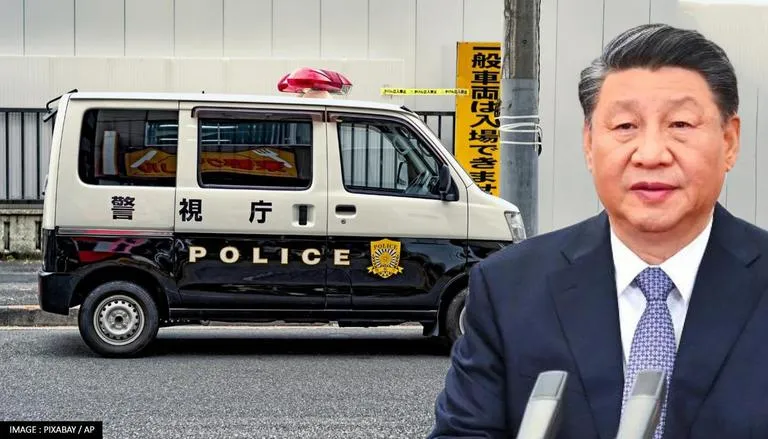Several western nations, including the United States and the United Kingdom, have exposed a ‘conspiracy’ of Chinese police setting up scores of ‘service stations’ abroad to pursue Chinese fugitives on foreign soil or using these stations to indulge in extra-diplomatic operations.
Safeguard Defenders, a human rights group, has been quoted by media in Europe and the United States that at least 102 such stations exist in 53 countries violating diplomatic protocols.
It is alleged that the Chinese police, acting through Chinese intermediaries in western countries, identify Chinese citizens wanted by their government to return to China. They reportedly use a technique that China calls quanfan, or “persuading to return”. It is a euphemism for measures ranging from putting pressure on relatives in China to the deployment of goons to threaten suspects in the countries where they live.
Since Xi Jinping took over as China’s leader in 2012, the use of quanfan has reportedly increased. With Xi’s war on graft, the Chinese police has turned their attention overseas, where thousands of corrupt officials having fled abroad. Secondly, the intermediaries browbeat suspects into getting on a plane back to China which the Chinese authorities feel is easier than enlisting the help of foreign police. That the Chinese allegedly infringe on sovereign rights in the process is of no concern to them and the West is protesting.
The group bases its information on reports circulated in China, including on the websites of state-owned media and local governments. They describe how police in three municipalities and one county in the provinces of Jiangsu, Zhejiang and Fujian have opened service stations abroad since 2016.
The operation was launched by China in 2014, under the title, Operation Fox Hunt, to repatriate Chinese people home from across the world. It also goes by the name of Operation Sky Net. According to reports, the Net tracks people involved in financial crimes.
The reports say the centers are run by ethnic-Chinese residents of the countries concerned and are aimed at helping Chinese abroad with paperwork such as registering marriages with the Chinese authorities and renewing Chinese driving licences. The reports say the bureaucracy is conducted by police in China via video link. The addresses cover 21 countries and are identified as those of police service stations. The newspaper said the list was issued by police in Fuzhou, the capital of Fujian, who gave a news conference in January last year to announce these overseas services.
Western governments ask how legal are these stations and how many laws of the host countries they may be breaking? The primary objective of these stations, apart from handling social contracts, is to harass or threaten people who are wanted, or disliked, by the Chinese authorities. Officially, Chinese people manning these stations deny they provide any extra or special services to the Chinese police. However, many western governments contend that the fact that China had not informed these governments about the centers “so that makes them illegal to begin with”.
Top media organizations including The Economist have reported on information from Safeguard Defenders. The group has found reports in China’s media linking three stations in Europe—in Belgrade, Madrid and Paris—with efforts to persuade suspects to return to China. Police in Nantong, a city in Jiangsu, said last year that stations they have set up abroad have helped with the return of 80 suspects. They have not said where the fugitives were living, the reports say.
It is suspected that the Chinese police use these stations or centers to track down Chinese expatriates and dissidents living far away from Chinese jurisdiction and send back information on them. In some cases, they may even be asked to any which way ensure the return of the expatriates.
There are reports that say these centers keep tabs on people from other parts of China, especially ethnic minorities such as Uyghurs or Tibetans. But among 1.7 million China-born immigrants in Europe, people from Wenzhou and Qingtian—two of the jurisdictions with stations abroad—form the majority.
In the United States, the FBI has a web page called “The China Threat”. It is often updated with links to news about the bureau’s efforts to counter it. Top of the list is the the FBI’s investigation of a Chinese balloon that the Americans shot down recently. But the website also offers strange information about Chinese surveillance on American territory, of China’s alleged pursuit of fugitives beyond its borders. The scale of activity globally is now staggering—involving many thousands of alleged miscreants—and it is increasingly straining relations with the West, according to The Economist.
The media organization reports that since 2020, the FBI charged 16 people, mostly Chinese citizens, with involvement in surveillance or tracking activities. Last October, FBI director Christopher Wary alleged that China was “interfering without independent judiciary, violating both our sovereignty and the norms of police conduct to run lawless intimidation campaigns here in our backyard”.
Wray also said, “We’re seeing the Chinese government resort to blackmail, threats of violence, stalking and kidnappings. They’ve actually engaged criminal organizations in the US, offering them bounties in hopes of successfully taking targets back to China.”
While the West has raised the issue in public, western governments expect China to respond to the charges and stop their police from operating in foreign countries under questionable circumstances. The Chinese expatriates living abroad do not complain about their harassment because they know that back home, the authorities can make life miserable for their family members.
China would probably have thought of the stations in the West to eventually become powerful enough to track political dissidents and bring them back to China, but the exercise may be in tatters now that it has been exposed.

